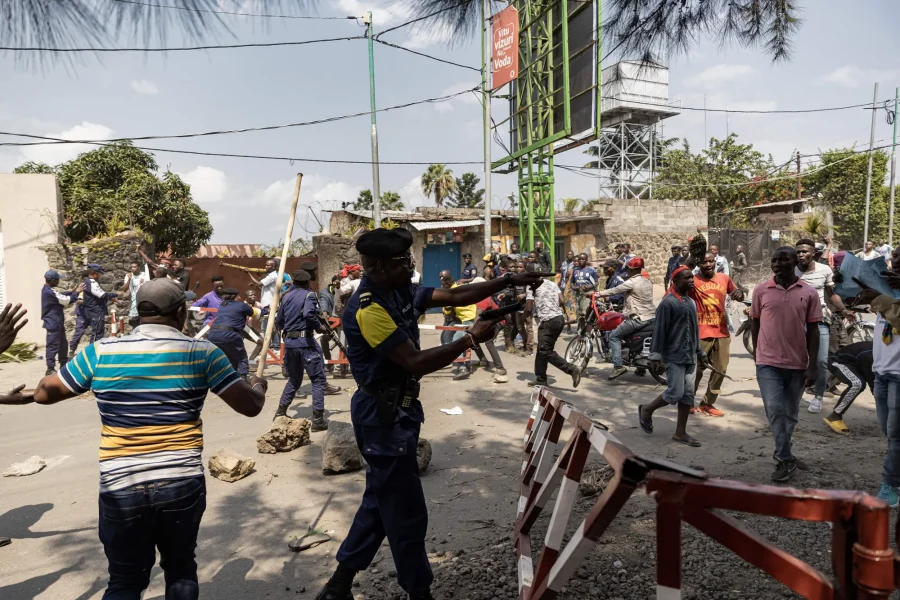Army troops were deployed to parts of the Senegalese capital Dakar on Friday as the city braced for more unrest after a jail sentence for opposition leader Ousmane Sonko sparked one of the deadliest days of violence in the country’s recent memory.
Nine people were killed in clashes between riot police and Sonko supporters on Thursday after he was sentenced to two years for corrupting youth. The opposition says the verdict, which could prevent Sonko from running in elections next year, was politically motivated.
Security forces patrolled streets, which were quiet on Friday but strewn with burned cars, rocks and broken glass and lined with damaged residences and businesses. Large groups of students were bused out of the university campus.
The army was deployed to reinforce security, government spokesperson Abdou Karim Fofana said.
Cheikh Anta Diop University in Dakar was the epicentre of Thursday’s violence, with protesters setting buses alight and throwing rocks at riot police, who responded by firing tear gas.
One student, Alioune Ndiaye, said he planned to travel hundreds of miles to his home in eastern Senegal to escape the violence.
“Yesterday was difficult and violent,” he said, heading for the campus gate with a backpack full of belongings. The bitter stench of tear gas still hung in the air. “My main concern is that the school year could be cancelled.” Thursday’s riot was the latest bout in months of protests in Senegal, long considered one of West Africa’s strongest democracies, sparked by Sonko’s court case but also over concerns that President Macky Sall will try to bypass the two-term limit and run again in February elections.
Sall has neither confirmed nor denied this. Sonko’s PASTEF party has called in a statement for citizens to “stop all activity and take to the streets”. Several social media and messaging platforms were still restricted on Friday as the government sought to limit online communications. Authorities in Dakar outlawed motorbikes for the next two days.
Normal life resumed tentatively in the Ouakam neighbourhood. Shops reopened and people queued for bread.
A gang had tried to pillage shops in the area, said Mouhamad Diouf, a business owner. He and others defended their stores before security forces intervened.
“We thought they were going to burn down the shop,” said Diouf, 40. Sonko, 48, was accused of raping Adji Sarr, a woman who worked in a massage parlour in 2021, when she was 20, and making death threats against her.
A criminal court cleared Sonko of rape, but found him guilty of an offence described in the penal code as immoral behaviour towards individuals younger than 21.
He denies wrongdoing. Many, especially the young, strongly support him. Cheikh Hann, a tailor, predicted that the unrest would continue.
“Young people are motivated, they will not let this go,” he said. “The government cannot eliminate opponents.”—APP










